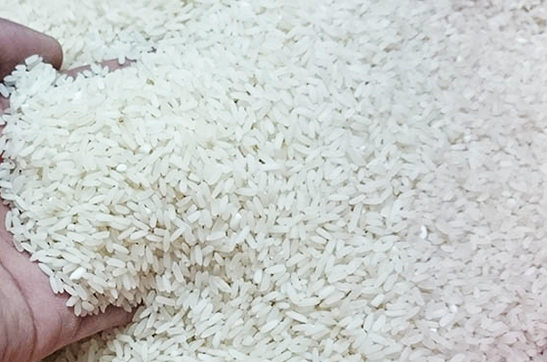_med.jpg) Economy
Economy

Việt Nam is expected to achieve its export target of 6.7 million tonnes of rice this year due to high global demand, according to an official of the Department of Plant Cultivation.

|
| Việt Nam targets to export 6.7 million tonnes of rice this year. Photo chinhphu.vn |
HÀ NỘI Việt Nam is expected to achieve its export target of 6.7 million tonnes of rice this year due to high global demand, according to an official.
The country could reach the goal and produce enough rice for domestic demand, said Lê Thanh Tùng, deputy head of the Department of Plant Cultivation under the Ministry of Agriculture and Rural Development (MARD).
Due to the spread of the novel coronavirus around the world, demand for rice reserves in many countries, especially China, will increase. Việt Nam’s traditional rice export markets, such as the Philippines and Indonesia, lack rice and they continue to import huge volumes from Việt Nam. Therefore, Việt Nam has many opportunities to boost rice exports, Tùng said.
Tùng said the winter-spring rice crop will ensure enough output for exports and domestic consumption.
Thailand – the second-largest rice exporter in the world – has suffered great losses in rice output from severe drought and saltwater intrusion with a reduction of about two million tonnes of rice.
In the winter-spring crop 2019-20, Việt Nam has had only about 28,000ha suffer from severe drought and saltwater intrusion, accounting for a small part of a total 1.65 million ha cultivating rice in the southeast region and the Mekong Delta. Therefore, Việt Nam will have an oversupply of rice to add to inventories from the last two crops.
In addition, the State Bank of Việt Nam has asked banks to enhance lending for rice production and consumption in the Mekong Delta. Banks there have provided loans in terms of 3-6 months with an annual interest rate of 6 per cent. That has provided a lot of support for firms and farmers in the industry.
Việt Nam's rice value has increased on the world market because a number of businesses have built value chains for rice, though domestic rice is still lower quality.
Experts say that to achieve sustainable export growth, the rice production industry must further develop the value chain.
Phạm Thái Bình, General Director of Trung An High-tech Agriculture Joint Stock Company, said if there is investment in the value chain and farmers work with businesses, stable production and consumption will follow.
According to the MARD, in the first two months this year, many key agricultural products, such as pangasius (tra fish), cashew nut, rubber and vegetables had strong reductions in export value, but rice exports gained year on year growth of 27 per cent in volume to 890,000 tonnes and 32.6 per cent in export value to $420 million, chinhphu.vn reported.
Increasing rice demand in many markets has increased Vietnamese rice exports from early this year, leading to a surge of rice prices in the domestic market, Tùng said.
During the first two months, the price of rice purchased at enterprises’ warehouses was VNĐ5,400-6,400 per kilo, VNĐ1,000 more than rice purchased at fields.
In the first two months this year, the price of 5 per cent broken rice for export on the domestic market increased to $380 per tonne, a high since December 2018. VNS




